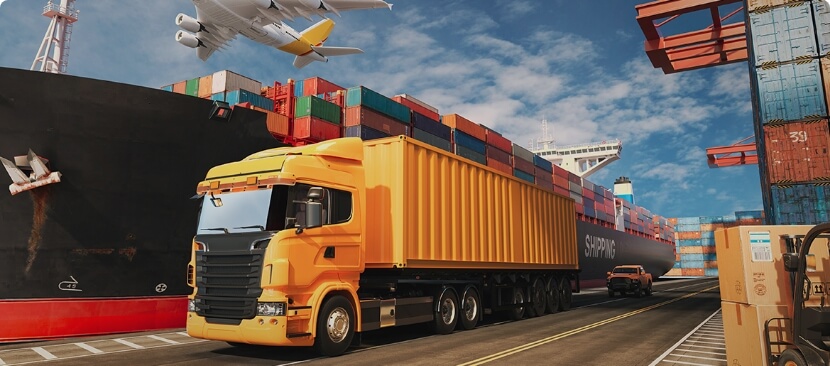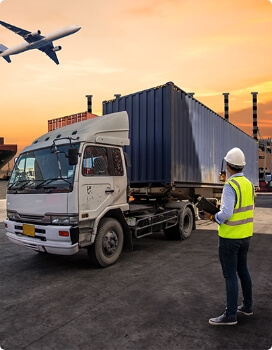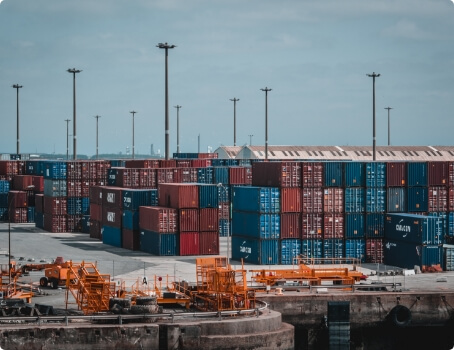
Your supply chain focus
The Effectiveness of Supply Chain in Global Courier Services
In today’s interconnected world, the efficiency of global courier services is pivotal for businesses and individuals alike. The supply chain management of these services plays a crucial role in ensuring timely and secure delivery of parcels, contributing significantly to customer satisfaction and overall economic growth. This blog explores the effectiveness of supply chains in global courier services, highlighting key components, challenges, and innovations that drive this essential industry.
– Key Components of an Effective Supply Chain in Global Courier Services
1. Transportation Network
The backbone of any courier service is its transportation network. This includes air, sea, and land transportation. Efficient coordination between these modes ensures that packages reach their destinations swiftly. Major courier companies leverage a combination of owned and third-party logistics providers to optimize routes and reduce transit times.
2. Warehousing and Distribution Centers
Strategic placement of warehouses and distribution centers globally is critical. These hubs facilitate the sorting and consolidation of packages, enabling faster delivery. Advanced technologies such as automated sorting systems and real-time inventory management are employed to enhance accuracy and speed.
3. Technology and Information Systems
Robust IT systems are indispensable for managing the complexity of global supply chains. Real-time tracking, route optimization software, and data analytics help courier companies predict and respond to demand fluctuations. Customers also benefit from transparency and the ability to track their parcels in real-time.
4. Customs and Regulatory Compliance
Navigating the intricate web of international trade regulations is a significant aspect of global courier services. Effective supply chains incorporate compliance checks and customs brokerage services to ensure smooth cross-border transactions, minimizing delays and legal complications.
Challenges in the Global Courier Supply Chain
1. Logistical Complexity
Managing a global supply chain involves coordinating multiple stakeholders, from manufacturers and suppliers to freight forwarders and customs authorities. The complexity increases with the geographical spread and diversity of products handled.
2. Environmental Impact
The carbon footprint of global transportation is a growing concern. Courier companies face the challenge of balancing speed and efficiency with sustainability. Innovations in green logistics, such as electric delivery vehicles and carbon offset programs, are being explored to mitigate environmental impact.
3. Political and Economic Instability
Global courier services are vulnerable to geopolitical tensions, trade wars, and economic instability. Such factors can disrupt supply chains, leading to delays and increased costs. Effective risk management and contingency planning are essential to navigate these uncertainties.
4. Cybersecurity Threats
With the increasing reliance on technology, cybersecurity threats pose a significant risk. Protecting sensitive customer data and ensuring the integrity of supply chain operations is paramount. Investments in robust cybersecurity measures and protocols are critical to safeguard against cyber-attacks.
Innovations Driving Effectiveness
1. Artificial Intelligence and Machine Learning**
AI and machine learning algorithms are transforming supply chain management. Predictive analytics help forecast demand, optimize inventory levels, and enhance route planning. Chatbots and AI-driven customer service platforms improve customer interactions and satisfaction.
2. Blockchain Technology
Blockchain offers unparalleled transparency and security in supply chains. It enables immutable tracking of parcels, from origin to delivery, reducing the risk of fraud and ensuring accountability. Smart contracts can automate and streamline customs clearance and payments.
3. Drones and Autonomous Vehicles
The adoption of drones and autonomous vehicles for last-mile delivery is revolutionizing the industry. These technologies offer faster and more efficient delivery options, especially in urban areas with high traffic congestion.
4. Internet of Things (IoT)
IoT devices enhance visibility and control over the supply chain. Sensors and GPS trackers provide real-time data on the location and condition of parcels. This level of monitoring helps in proactive issue resolution and improves overall reliability.
Conclusion
The effectiveness of supply chain management in global courier services is crucial for meeting the demands of a fast-paced, globalized economy. By leveraging advanced technologies and innovative solutions, courier companies can overcome challenges and enhance their service delivery. As the industry continues to evolve, a focus on sustainability, security, and customer satisfaction will drive the future success of global courier services. The ongoing improvements in supply chain effectiveness will ensure that the world remains connected, one package at a time.




1 Comment
Joe Doe
May 25, 2023Lorem ipsum dolor sit amet, consectetur adipisicing elit, sed do eiusmod tempor incididunt utx gh labore et dolor magna ali Ut enim ad minim veniam, quis nostrud exercitation ad minim veniam, quis nostrud exercitation.